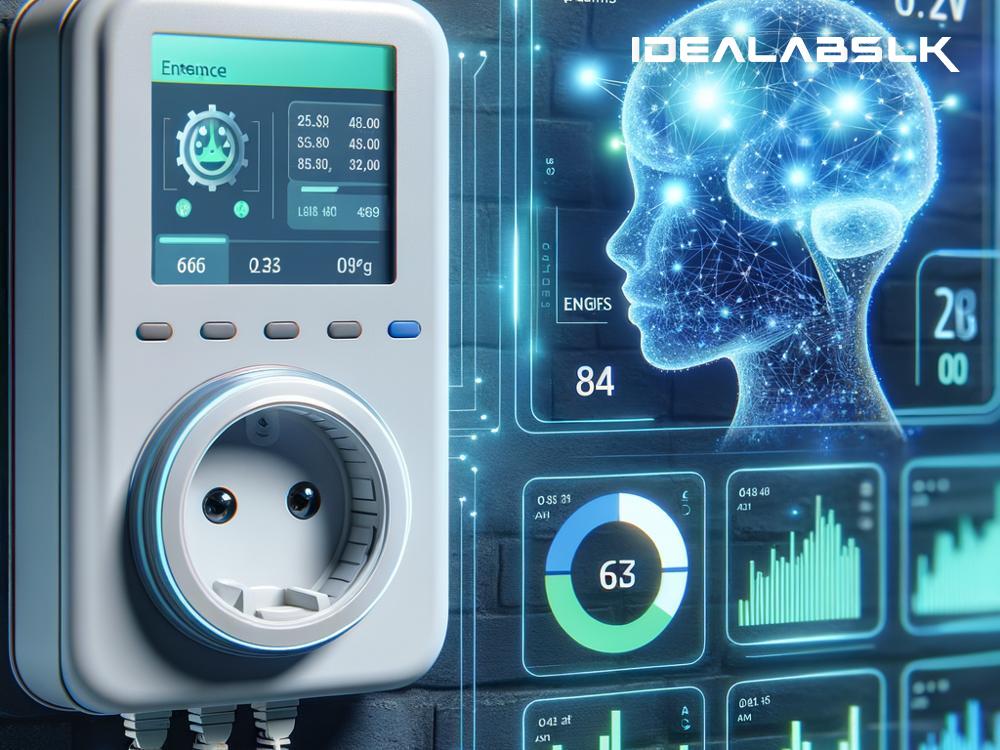Harnessing AI Power: The Smart Energy Meter Revolution
In today’s fast-paced world, where every bit of information counts, having control over your energy consumption can make a significant difference, not just for your wallet but for the planet too. That's where the magic of AI (Artificial Intelligence) in smart energy meters comes into play, revolutionizing the way we predict and understand our energy usage. This technological marvel is not just about saving a few bucks; it's about paving the way towards a more sustainable and efficient future. Let’s delve into how AI-enabled smart energy meters are reshaping our approach to energy consumption.
Understanding Smart Energy Meters
First off, what exactly is a smart energy meter? In simple terms, it's like the traditional meter that records your gas or electricity usage, but on steroids. It does more than just track; it sends this data directly to your energy provider in real time. This means no more estimated bills or having someone come to your house to read the meter. But the real game-changer is when AI joins the party, transforming these devices into smart hubs that can predict and optimize your energy consumption.
The AI Advantage
AI works by analyzing patterns - and the more data it has, the better it gets at predicting future trends. When integrated with smart energy meters, AI can analyze your past and current energy usage to forecast future consumption patterns. This might sound a bit like magic, but it’s all based on sophisticated algorithms and data analysis.
For instance, by understanding when peak energy usage times are, AI can advise homeowners when it’s best to run high-energy-consuming appliances or even automatically adjust the thermostat to maintain efficient energy use. This not only helps in reducing the energy bill but also plays a vital part in managing the load on the power grid, leading to a more stable and reliable energy supply for everyone.
Benefits for Consumers and the Environment
The advantages of AI in smart energy meters are twofold: personal and planetary. On a personal level, having a detailed breakdown of your energy consumption patterns at your fingertips (often through a smartphone app) can lead to more informed decisions about your energy use. For example, if you notice that your energy consumption spikes every evening, you might decide to run your dishwasher at night, during off-peak hours, to benefit from lower rates.
On a planetary level, when scaled across millions of homes, the cumulative effect of these small adjustments can be monumental. By smoothing out the demand for energy, we can reduce reliance on peaking power plants, which are often the most polluting. This can lead to a considerable reduction in greenhouse gas emissions, helping in the fight against climate change.
Challenges and Considerations
However, it’s not all smooth sailing. Issues such as data privacy and security come to the forefront when dealing with AI. There's a balance to be struck between harnessing this data for good while ensuring it remains secure and private. Additionally, for AI to be truly effective, it needs vast amounts of data, raising questions about data ownership and consent.
There's also the aspect of digital divide - ensuring that everyone has access to these advanced meters and the benefits they bring. Efforts must be made to ensure that the shift towards smart energy solutions is inclusive, leaving no one behind.
Looking Forward
The integration of AI with smart energy meters represents a crucial step towards more sustainable living and energy use. As technology advances and becomes more accessible, we can expect these systems to become even more sophisticated, offering deeper insights and further optimizing energy consumption patterns.
In the grand scheme of things, adopting smart energy solutions is more than just about saving money or convenience; it’s about taking actionable steps towards reducing our environmental impact. By leveraging AI in smart energy meters, we’re not just predicting consumption patterns; we're heading towards a future where energy efficiency and sustainability go hand in hand.
Conclusion
The fusion of AI and smart energy meters is more than just a technological advancement; it's a gateway to understanding and optimizing our energy consumption like never before. By providing detailed insights and predictive analytics, these smart devices empower consumers to make smarter decisions, leading to cost savings and, more importantly, a reduced environmental footprint. As we continue to navigate our way towards a greener future, the role of AI in smart energy management will undoubtedly be pivotal. Together, we can look forward to a world where energy is not just consumed but consumed wisely.

